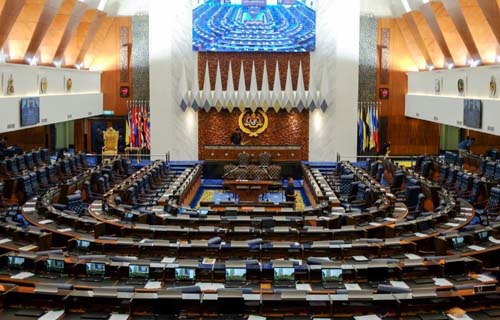Post GE14 Racial Politics

Written by David Bakit, a member of Akar Umbi Kita, a programme for emerging advocates against racial discrimination by Architects of Diversity, Imagined Malaysia, IDEAS and the European Union. This article is published in conjunction with the International Day for the Elimination of Racial Discrimination.
The 14th General Election marked the fall of Barisan Nasional, signifying the end of a 60-year undefeated streak of the BN government ruling. Nonetheless, the defeat should not be translated as the final nail in the coffin for BN or for race-based politics. Political narratives still continue becoming increasingly race-based.
Within the context of our nation’s political history, race-based politics is not something that is alien. Undeniably, we are a nation founded by the three major race-based parties. Since then, race has been the central point when it comes to the narratives of our nation’s socioeconomics and politics. Since we gained independence, we have observed how race has managed to shape our country’s political outlook. To understand this context better, the nation has been continuously ruled by a racial-centric party and the throne has not shifted towards a more inclusive, multiracial outlook. This is happening despite our country boasting a harmonious, multiracial image worldwide. Nonetheless, living as a minority in this country remains a huge challenge economically, socially, and politically. Thus, we ought to ask ourselves what really happened and propelled the nation towards a racially divisive outlook?
In February 2020, our country was hit by two massive calamities at the same time; the Covid-19 pandemic and political instability, as the country’s most powerful politicians converged in the Sheraton hotel charting a new political direction for the country. With the “Sheraton Move” taking place, Malaysia is projected to have a seismic shift in its political direction. The move was in place with the intention to reinforce the Malay-Bumiputera political dominance which seemed to have decreased after GE-14. For those who remembered what happened during that month, it was the month of massive uncertainties for the nation and surprisingly, these uncertainties persist to this date. Nevertheless, certain quarters might rejoice with the reinstatement of the Malay-Bumiputera dominated government.
Prior to the Sheraton move, race-based narratives were being amplified greatly from both political spectrums. Talks of reforms were replaced with talks of staying in power. Any efforts made to reform were temporarily halted, as the opposition at that time manipulated the narrative by translating it into a racially infused political narrative. One of the commonly cited examples of reforms that were halted was made by the then opposition in the form of a mass protest against the ratification of the “International Convention on the Elimination of All Forms of Racial Discrimination” (ICERD). Shortly after the Pakatan Harapan ascendancy to the government, the government decided to ratify ICERD with the intention to conform to the international norms to end racial discrimination. Despite their noble intention, their effort was opposed by the opposition at the time citing that it would undermine the special rights given to the Bumiputera community enshrined in the Federal Constitution. The situation was further heightened when a mass rally was being held to protest against the treaty ratification. This had ultimately led to the then government taking a “U-turn” and withdrawing their plan to ratify ICERD.
The rejection of the ratification of ICERD can indicate that despite a change of government, the overwhelming narrative remained the same. Conservative racial narratives still dominate the majority. The political reality back when Pakatan Harapan was in power did not permit drastic reforms, as drastic reforms can only be done via a strong government which Pakatan Harapan clearly lacked especially with their never-ending infightings within their own coalition.
In conclusion, the calamities after the ascendancy of the Pakatan Harapan were nothing but a disappointment especially in the perspective of race. The nation has become more politically divided than ever due to divisive racial sentiments being used by many politicians on all sides of the divide. Lessons should be learned from the calamities that happened so that these calamities would not be repeated again in the future.


